In an age of frenetic beer release schedules, launching the first addition to your core range in more than four years is something of a lesser seen approach to business. But playing the long game in only releasing a new beer when it’s been dialled-in, and when the time is right, is the Muskoka Brewery way. And their beer is all the better for it.
Todd Lewin, president of Ontario’s Muskoka Brewery, doesn’t do things by halves. But when you see what you’re doing is working, and working well, then why would you look to do things otherwise?
Year-on-year growth, a team that’s swelled from 30 to 130 in seven years, and an established core range of beer are all pointers that signify success. But as Lewin enters the 8th year of his tenure at the Bracebridge brewery, he’s as eager as ever for Muskoka to make its mark on the Canadian brewing landscape. And he knows that the team behind the Muskoka name is integral, no essential, to that success.
“Call it a cliché, but we work hard and we play hard,” explains Lewin.
He’s happy to roll out such effective platitudes because as the brewery shuts for Christmas, the team has planned its workload so inventory levels are as expected and his colleagues can enjoy some well-earned time off.
“I’m a firm believer that you benefit from the culture you help create. And when you’re surrounded by such hard-working, talented individuals, immersing yourself in a positive, productive environment like we have here is very easy indeed,” he says.
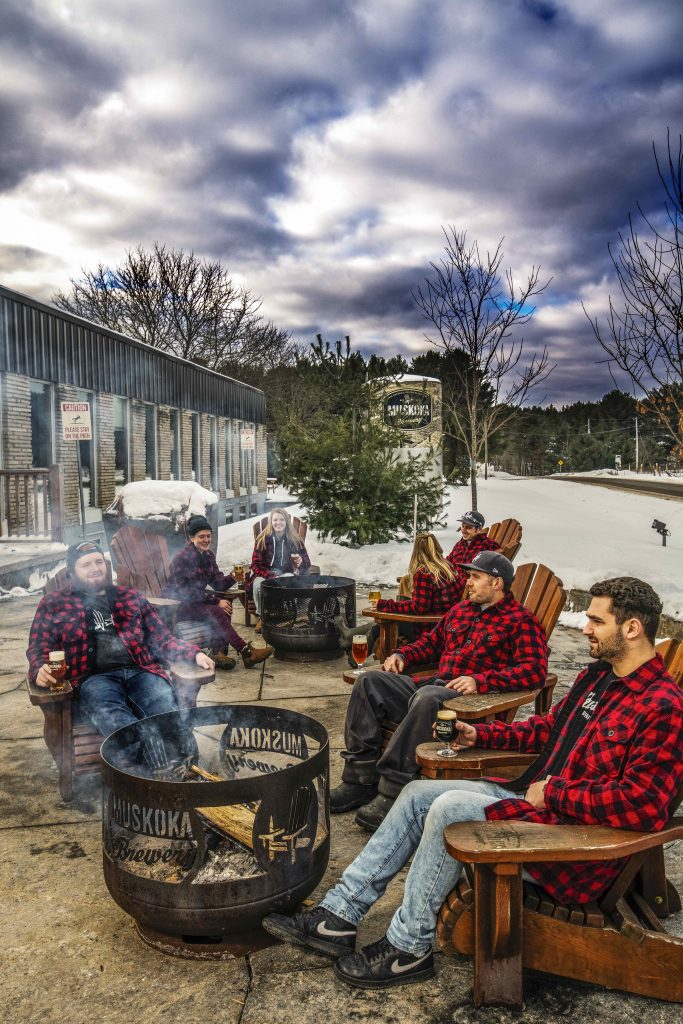
Lewin is modest, yet determined. Muskoka enters 2019 off the back of productive, successful 12 months both for the business, and the beers that business makes.
Since 2016, the brewery has worked in partnership with the Ontario Craft Brewers Association to advocate for changes to the Small Beer Manufacturer’s Tax Credit and help craft breweries, like itself, grow.
With the introduction of last year’s budget, the Government of Ontario in collaboration with the Ontario Craft Brewers (OCB), proposed changes to the Small Beer Manufacturer’s Tax credit, which when passed, will positively impact Ontario craft breweries, empowering them to grow their operations, create more jobs and expand to new markets – both domestically and internationally.
For Muskoka Brewery, the improved tax credit, as well as a substantial grant awarded by the Ministry of Economic Development, presented the opportunity to invest in its growth and expansion.
“The renewed tax credit wasn’t just good for Muskoka Brewery, it’s good for Ontario craft beer. As a pioneer in the industry, we know there are significant hurdles to reach profitability,” says Lewin. “This improved tax credit will remove a major barrier to growth and help small breweries get over significant hurdles.”
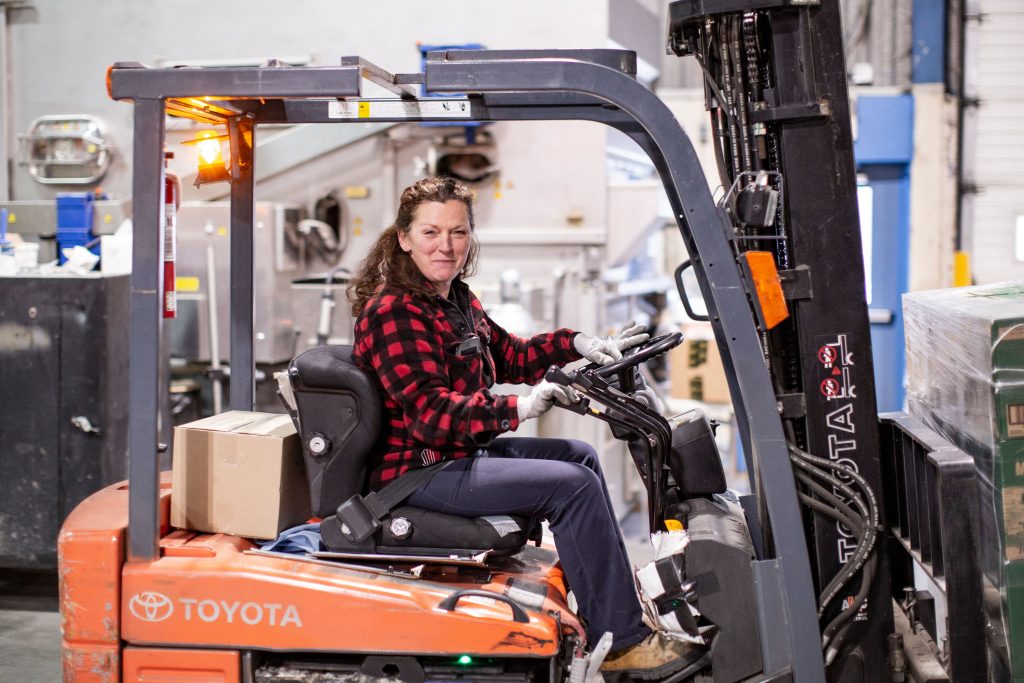
With this longer runway to grow and succeed, the company has invested $5 million in the brewery’s operations, the largest capital expansion in its near 22-year history.
These funds were earmarked to help the business increase the brewery’s capacity and continuously improve the quality of its beer through new, cutting-edge technology and equipment.
It also supports an expanded and enhanced retail store and taproom experience to solidify Muskoka as a destination brewery for locals, cottagers, day-trippers and tourists.
The multi-million dollar spend allowed the brewery to invest in a new canning line, catering for the shift from bottling to canning its produce. Such an investment was a no-brainer when you crunch the figures. Five years ago, 50% of Muskoka’s beers were bottled and 50% were canned. Now that’s 90/10 in favour of cans, so a new machine, supplied by Krones, was a necessity.
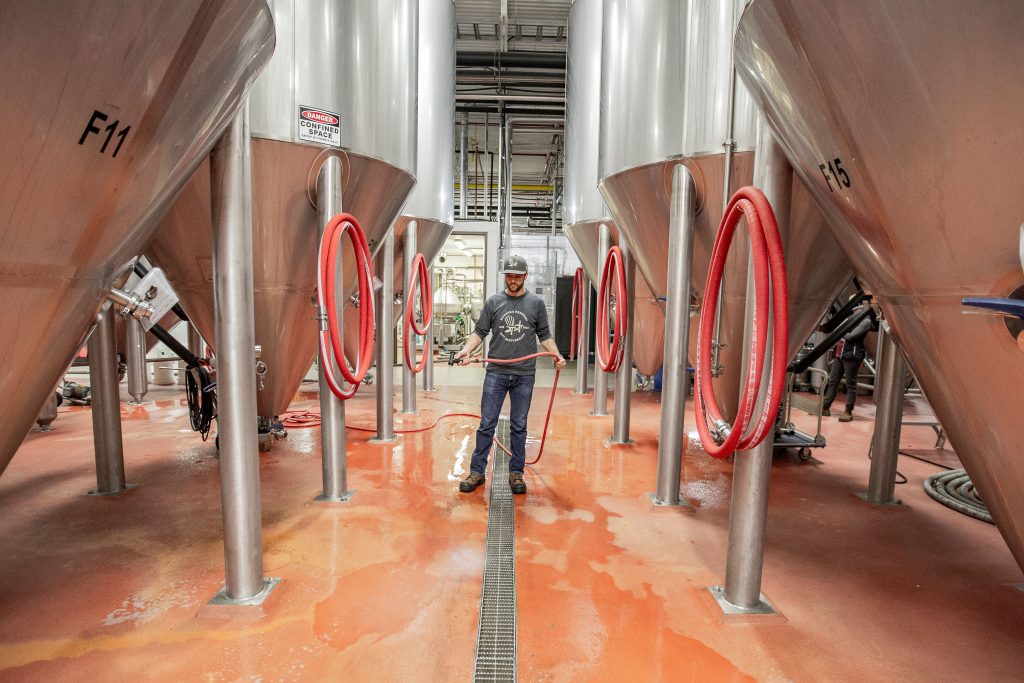
Two older machines could can at a rate of 30cpm and 60cpm respectively, but the Krones model offers output speeds up to 240cpm. A true step change.
“We are very happy with it,” says Lewin. “We conducted a great deal of research on the options available to us, but we wanted to make a statement and opt for a system that would do well for Muskoka. Lots of breweries are putting a pause on such investments, but we wanted to move on, put our foot back out there and show people we believe in the beer we are making, and we believe in this business”
The investment in machinery is a big step for any brewery, especially when it’s carried out during the hectic summer months. In Lewin’s own words, summer was a “tough” time to undertake such a move, and it inevitably disrupted the business. But the long-term benefits are far greater as a result.

“It was a big moment for Muskoka Brewery, small businesses and for Ontario beer drinkers. It means better beer, more choice and that Canadians’s favourite breweries will be able to stick around,” says Lewin. “As a proudly independent brewery, we feel a tremendous amount of pride that our investment will stay in Ontario and support our local economy and community.”
Lewin’s pride in the Ontario community has only grown since joining the business back in 2011. He came on board with a business run by Gary McMullen, who founded Muskoka back in 1996 and Bob MacDonald, the majority partner who joined the Muskoka cause 12 years later in 2008.
As vice-president of sales and marketing, Lewin was part of a team that knew it needed to update its approach to business, broaden its sales team and ensure its beer could be enjoyed further across Ontario and Canada as a whole.
Lewin, who has spent 13 years within sales and marketing at Molson Coors, knew he could apply his experience to Muskoka and grow the business by grabbing “low-hanging fruit” and build its client and customer base as a result.
Growth of close to 25% year-on-year growth has been achieved in the eight years since Lewin joined the business. He’s acutely aware of the team effort involved, especially with the brewery’s founder McMullen departing in early 2017. That move paved the way for Lewin to become the brewery’s president, a role he continues to relish.
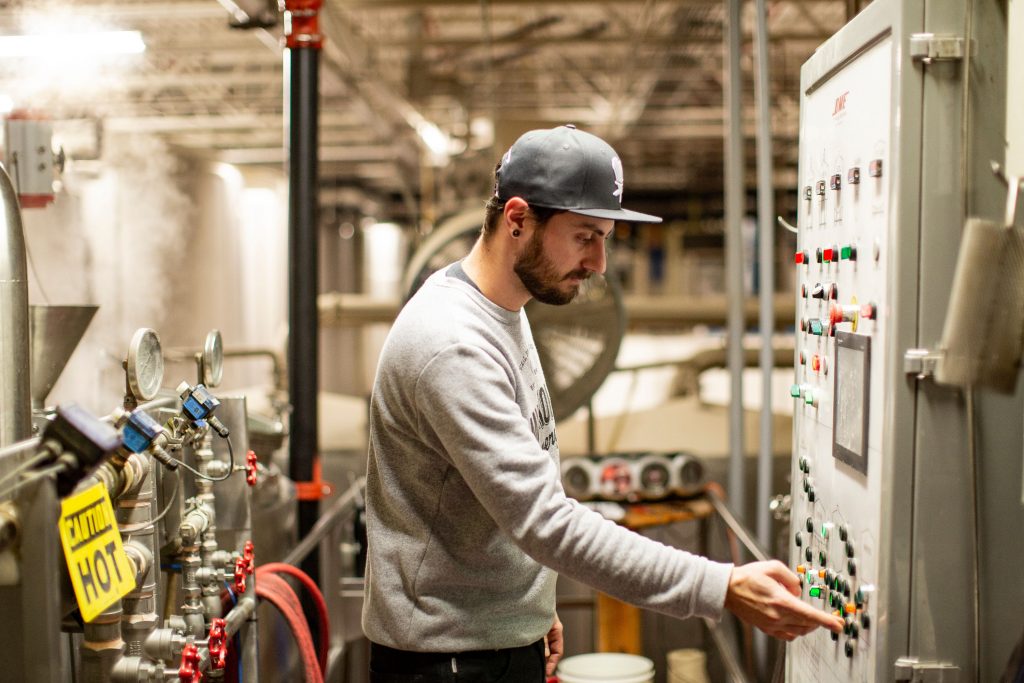
“The timing of moving to Muskoka was good for me and the business, and we’ve thankfully grown in these recent years,” says Lewin. “But as you continue to grow and scale up, it’s important to acknowledge that delivering that percentage growth each year becomes harder. You just need to concentrate on what you’re doing, and try and do it well.”
Lewin admits that growth in the last eight years correlated with a period in which 30 or so breweries operated in Ontario. Now that number is closer to 300. But just as the number of breweries has grown so has Muskoka, its team, and its brand.
“Our culture and team has allowed us to build, improve and maintain our vision,” he tells us. “It’s hard when you feel like a tight-knit group of 20-30 people, and then over the years, that becomes 130 people. It’s important to make sure that everyone feels welcome, and that they are part of the team.”
Muskoka produces its beers on a 70hl brewhouse, focusing on five core brands that comprise 95% of its volume. While Lewin enjoys the experimentation aspect of brewing, he reiterates that the focus from day one has been on developing a “real brand” and ensuring stability and security as a result.
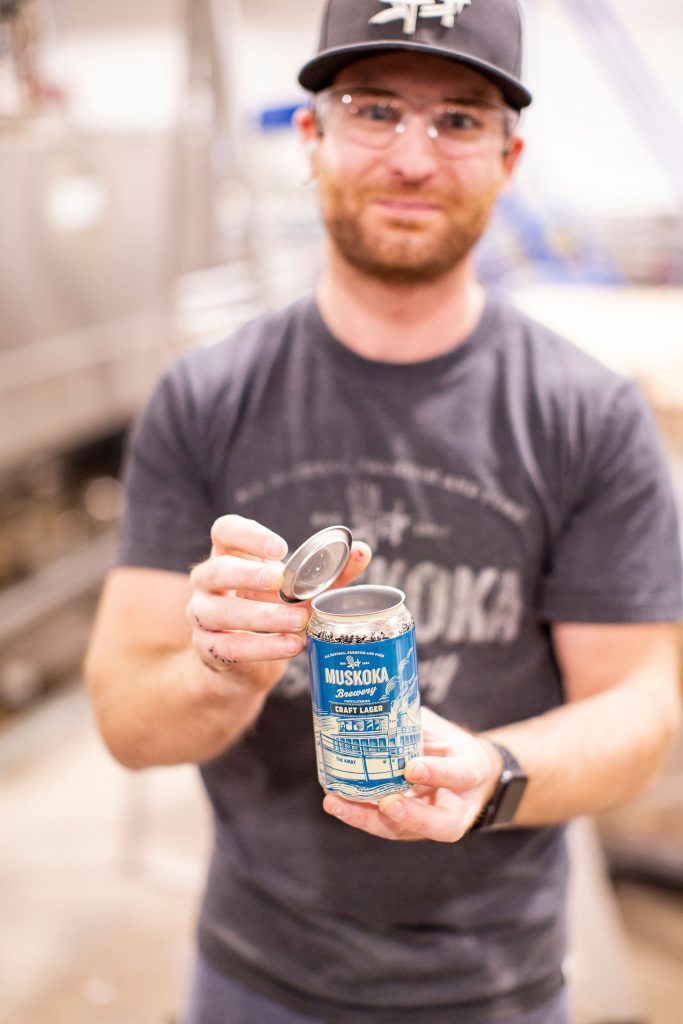
With that in mind, its newest beer, Ebb & Flow, recently became the outfit’s first addition to its core range since 2014. Complementing favourites such as Cream Ale, Detour and Mad Tom IPA, the new beer is a low ABV session number. But instead of being a Session Pale, Muskoka has instead chosen to produce a 2.4% Session Sour.
According to the brewery, you’ll pick up a light tropical aroma with notes of lime and grapefruit on the nose of this effervescent beer. With a pleasantly tart flavour up front, there’s no need to pucker up
“It’s all in the name. ‘Ebb & Flow’ calls out balance that’s achieved in motion. It’s well-suited to occasions when you’re craving a full-flavoured beer, but need to stay the course, whether that’s your weekend chores, heading back to work after a lunchtime pint or catching up with friends over the holidays,” says Lewin. “Sours continue to attract new drinkers to the beer category and with the recent legalization of cannabis, we also see occasions where there is crossover with a low alcohol beer option.”
The launch of Ebb & Flow is something of a milestone for Muskoka. Lewin explains that there’s been something of a fragmentation of the market during his time in beer, something that’s only amplified during his years at the Ontario brewery.
“Gone are the days that people would adopt a brand and stick with it for life. There’s a promiscuity centered around drinkers wanting to explore new styles, and that’s understandable,” he says. “It’s a change of culture and for us, when we launched beers like Mad Tom IPA out in to the world, it helped us learn about the types of beers drinkers wanted.”
Lewin adds: “We were banging on doors that would shut on your face, but we remained focused on building these brands because we had faith in them. We wanted to develop real brands with real equity. And we stuck with that.
“You see a lot of breweries chasing short term trends, and I believe that’s an example of short-termism. For us, it’s about having a position and looking to differentiate yourself when it comes to quality and consistency. It’s your sword to fall on.”
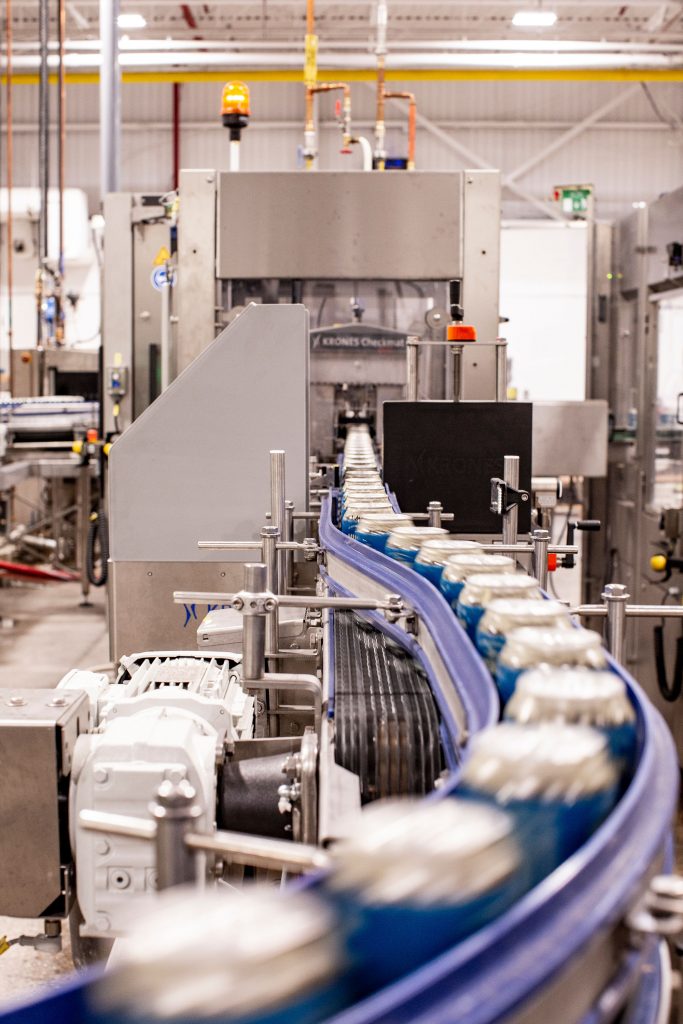
For Lewin, quality is all-important. Because if you’re not offering a quality, reliable experience then you can’t blame the consumer for looking elsewhere.
“The days of people buying a case of one beer and nothing else are long gone. It’s ok to be promiscuous now. We have a saying that we want to be two of every eight-pack you buy. And with that, our name is a guarantee of a quality, well-made beer. And yes, you have our permission to drink other brewery’s beers too,” he laughs.
Lewin is thrilled to be part of such a hotbed of brewing innovation in Ontario, and sees the growth of sour, wild fermentation beer is a boon for the industry. He’s also thrilled that Muskoka continues to grow with it, especially after a year of upheaval even if it’s all for the greater good.
“We continue to ask ourselves what is the reason we exist,” he states. “We’ve never had a traditional vision here at Muskoka. What’s been important is that we want to make a difference in the community, through our beer, employment and the benefits those things bring
“I feel that this brewery has shown resolve in its lifetime, and we never take things for granted. We always want to improve, and to do better.”
